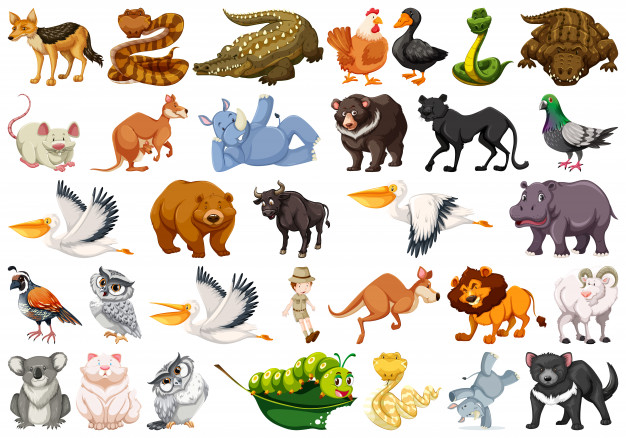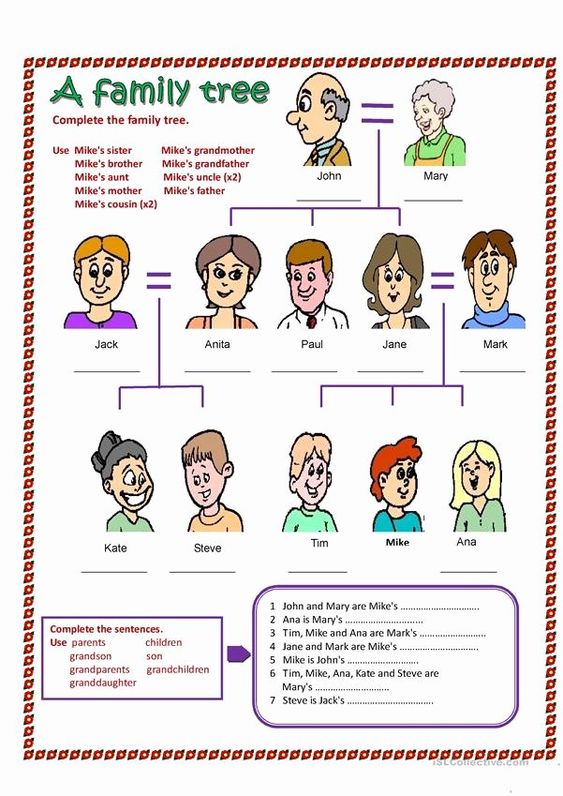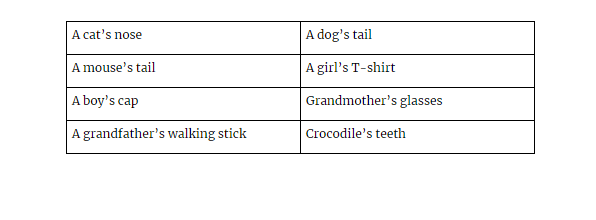Teaching English grammar to kids may sometimes turn out to be boring and not easy if we don’t strive to make the process challenging and motivating. Many children, especially those from Russia, face some obstacles while learning the possessive case in English. The reason for it is quite obvious — this phenomenon is formed completely differently in their mother tongue. Taking into account the huge necessity of practising possessive case with kids in a fun and entertaining way, we have prepared a list of activities that may come in handy.
Whose is this? Whose are these? (Drawing game)
Students flip the coin and work in pairs.
Heads — Student A
Tails — Student B
Student A draws an object on a sheet of paper and asks his/her partner: “Whose is this/are these?”. Student B gives a full answer: “I think, this is your father’s hat.” They can continue the dialogue with “Yes, you are right.” or “No, this is my brother’s hat.”
When they have already discussed 10 questions, they can change roles. Now Student B asks and Student A tries to guess the answer.
Animals
Ask each of your students to describe one animal using the possessive case. If they have difficulties, provide them with an example: “The dog’s tail is yellow.”

Clothes (Boys, girls)
Distribute cards with different clothes to your students. Ask them to tell you whose clothes they are — boy’s or girl’s? In this activity students make true sentences practising not only the possessive case but also the vocabulary on the topic of clothes. You can find and download plenty of clothing flashcards on Pinterest.com


Family, favourites
Ask your kids to write down a list of favourite things (sport, meal, country, song, book, film, etc) referring their family members, relatives and friends. For example:
My favourite colour is blue.
My mother’s favourite colour is yellow.
My father’s favourite colour is purple.
Tom’s favourite colour is red.
Family tree
Show your students a picture of a family tree and ask them to make sentences writing down who is who. For example:
John is Mary’s husband.
Anita, Paul and Jane are John’s children.
Jane is Mark’s wife.

As a variation of this activity, children can bring their family photos to the classroom and introduce their family members. For example:
These are my parents. My mother’s name is Alisa. My father’s name is Bob. Andrew is my father’s friend.
Draw the lines
The teacher gives the same picture to all students and starts saying sentences about the picture using the possessive case. Children draw lines in the pictures to show what belongs to whom. For example:
Allie’s bear
Bob’s ball
Susan’s bag
Tom’s ballons
Mark’s globe

Guess the thing

Children flip the coin and work in pairs. Heads — Student A, Tails — Student B. Student A chooses one of the cards below and draws that thing until his/her partner guesses the word-combination.
To make the game more challenging, you may also set a timer and organise a competition between different pairs. The pair that is the first to guess all the answers becomes the winner.
Which of the activities would you definitely use with your kids? Why?














 Олеся Яресько
Олеся Яресько 
 Диляра Биктагирова
Диляра Биктагирова 

 Маргарита Аветисян
Маргарита Аветисян 

Thank you very much!